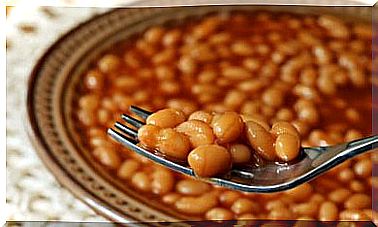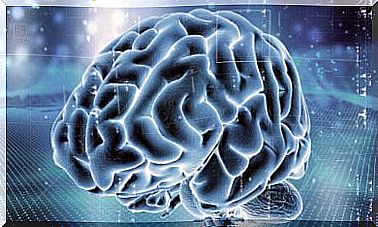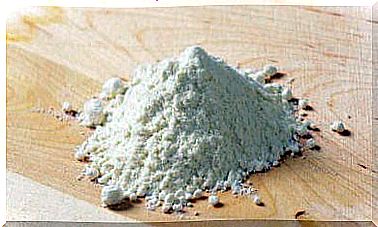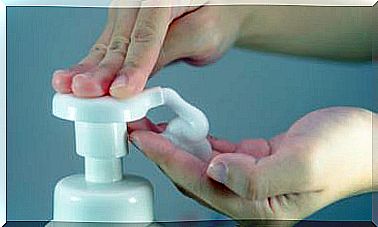7 Things You Can Do Every Day To Improve Your Digestion
Knowing how to eat is essential to digest food well and, of course, to have good health in general.

If after meals you have various pain and discomfort, perhaps you should evaluate your eating habits and begin to implement some actions to improve your digestion.
Often times, you may not realize how much of an impact the way you eat is. For this reason, many people believe that simply eating when the stomach roars with hunger is enough for health.
However, when you do not take care of the quality of food, the times to eat and other related aspects, you are not obtaining any health benefits, quite the opposite.
Therefore, below we present the 7 things you can do daily to improve your digestion and thus take advantage of the nutrients that food offers.
1. Drink enough water throughout the day

It is well known that it is necessary to drink sufficient amounts of water throughout the day. However, many times why this recommendation is made is forgotten.
Water is essential for the body, since it contributes to the proper functioning of its various systems. And do not forget that the human body itself is made up of almost 65% water.
Simply put, water helps break down food so that its nutrients (vitamins, minerals, etc.) can be easily absorbed.
It also helps to eliminate all those toxic substances and waste, through urine and sweat. In addition, it helps soften the stool and, thereby, prevents constipation.
When it comes to eating, it is important to moderate your water consumption and pay attention to its temperature. Excessive fluid intake between bites, as well as cold water, are considered to make digestion difficult.
2. Avoid eating fast food
Junk food is attractive to consumers, not only because of its taste, but because it represents a quick and easy eating option.
However, its excessive consumption ends up affecting health, since it is loaded with processed carbohydrates, fats and sugars that are irritating to the digestive system.
Scrap causes an imbalance in the bacterial flora that protects the intestine and, in turn, leads to the development of metabolic diseases.
Therefore, to avoid slow digestion or other associated disorders, it is best to exclude it from the diet and take it only occasionally.
3. Increase the consumption of probiotics
The gut is populated by a group of healthy bacteria, known as bifidobacteria, which are necessary for gastrointestinal and immune health.
Bifidobacteria prevent the attack of malignant infectious microorganisms and, in turn, participate in the decomposition of waste.
Foods rich in probiotics provide live bacteria, the same or similar to those of this flora, which help maintain their balance. Including them in the diet prevents digestive discomfort and infections.
To improve your digestion and take care of the balance of the bacterial flora, we recommend taking: kefir, sauerkraut, natural yogurt, kombucha tea or miso soup ..
4. Add more fiber to your diet
Fiber is one of the essential nutrients that support the digestion process, as it prevents the accumulation of waste in the colon.
This stimulates the intestinal movement, thus facilitating the passage of feces through the intestine for its subsequent expulsion. In addition, it creates a satiating effect that helps control food cravings.
To improve your digestion you can consume more of the following foods:
- Berries.
- Nuts.
- Apples and pears.
- Whole grains.
- Green leafy vegetables.
- Chia, flax and sunflower seeds.
5. Drink aloe vera juice
Including aloe vera in the diet, either in its natural form or in juices, prevents digestive difficulties associated with constipation or stomach irritation.
The natural juice of aloe vera has a slight laxative effect that favors the elimination of waste that accumulates in the colon.
Its properties regulate the pH of the stomach, thus helping to control the excessive production of acidic juices and reduce irritation.
6. Rest your meals
To improve your digestion, it is important that you learn to rest your meals. Just 15 to 20 minutes sitting quietly on the couch is enough.
In this sense, you should know that it is not advisable to take a nap immediately after eating since this only contributes to a certain amount of gastric juices rising to the esophagus and causing burning.
On the other hand, you should know that physical activity is not recommended immediately after eating because it promotes indigestion.
7. Exercise regularly

Exercising on a daily basis is extremely positive for overall health and, with regard to gastrointestinal health, you should know that it helps reduce inflammation, promote intestinal transit and regulate bowel movements.
After at least two hours after the meal, you can exercise. Now, it is necessary to perform between 20 and 30 minutes a day to prevent constipation and heaviness.
Go ahead and improve your digestion!
To improve your digestion, you don’t need to make big changes in your lifestyle, but rather be more aware of what is healthiest when it comes to eating.
If you feel heavy or have abdominal bloating, follow the above recommendations and, in case you don’t get relief, consult your doctor.









